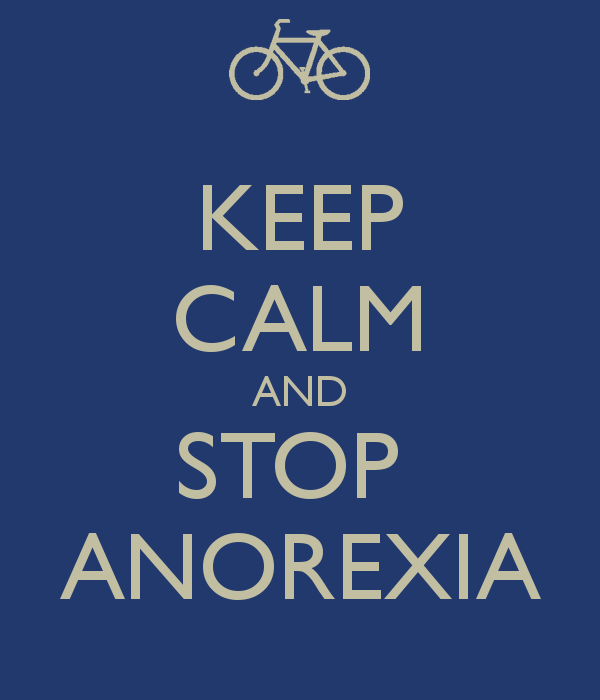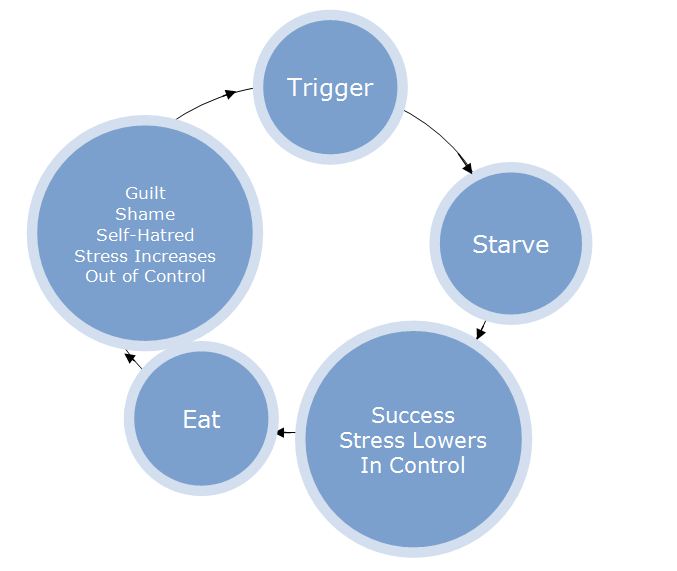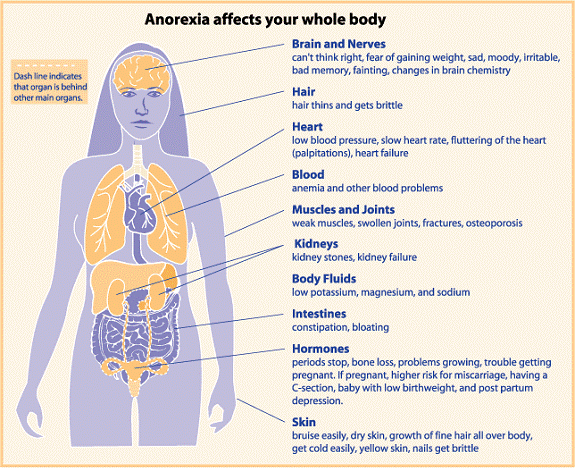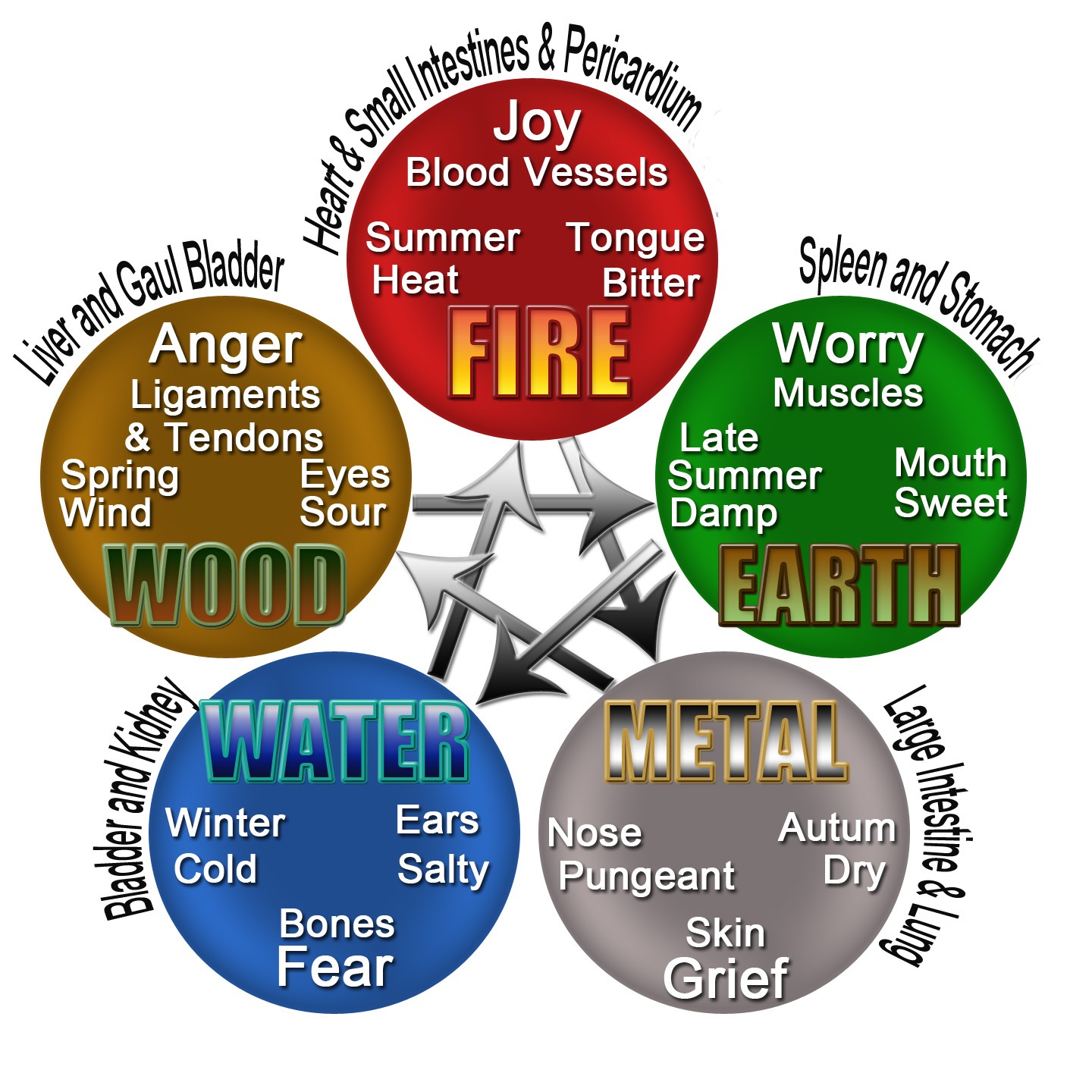
Of all the eating disorders, anorexia has the highest mortality rate.
My personal connection with anorexia has been to support my daughter with overcoming this eating disorder.
From 24th February – 2nd March 2014 is Eating Disorders Awareness Week

Of all the eating disorders, anorexia has the highest mortality rate. According to the UK charity beat, anorexia has a 20% mortality rate. My personal connection with anorexia has been to care for and support my daughter with overcoming this eating disorder. The journey has given us both many insights into this complex disorder.
Anorexia is characterised by periods of self-starvation resulting in weight-loss. Body image becomes distorted. No matter how thin the anorexic becomes they still think and see their body as not thin enough!
Like other eating disorders, the triggers for starvation are often rooted at a subconscious level.
Anorexic Cycle

It is particularly hard to see your loved ones stop eating. Anorexics may not want to be seen eating in the presence of others or they may have extremely small portions of food on their plates but not actually eat. Other tactics to avoid food at meal times include saying you ‘already ate’ or ‘you are not hungry’. This can cause a lot of stress at meal times both for the anorexic and their family and friends.
For the anorexic, foods become classified as ‘safe to eat’ such as fruit and vegetables or foods where the calorific intake is exactly known. Other foods like bread, fats/oils, sugar are seen as ‘unsafe’ and avoided at all cost.
In the early stages of anorexia, cravings for food are strong as hunger pangs are felt. As the physical relationship with food starts to decline, an obsession starts to build with food. The anorexic may cook for others but not eat or they will think about food, look at food pictures or even organise the food cupboards. As anorexia grows stronger, the hunger pangs are ignored and the obsession with food transforms to a repulsion. A fear of food has now developed.
At this stage, eating in the home became difficult for us, our family life became disrupted.
Over the weeks anorexia took over and created many rigid rules all under the disguise of ‘staying safe’! I am talking about anorexia as if it is a personality. As anorexia took hold, it became the dominant voice in her head, enforcing the rules and taunting her to continue.
As a parent, I was shocked to learn about the numerous websites known as ‘pro ana’ sites on the Internet which supported anorexia!
The Narcissistic Nature of Anorexia
Unlike binge eating and bulimia, anorexia has a very competitive and self-obsessed nature in achieving perfection. They have to be the thinnest, eat the least and look the best highlighting a ‘black’ and ‘white’ mindset with no middle ground. With binge eating amd bulimia, support from sharing stories with other sufferers tends to be helpful. However, for anorexics the need to compete in a group could outweigh the benefits from sharing experiences with other anorexics.
It’s Not About the Food
Like binge eating and bulimia, anorexia is not about food. Anorexics are often holding deep-rooted unexpressed anger and a feeling that life is out-of-control. Starvation and weight-loss helps the anorexic to feel back in control and to calm stress.
For some anorexics, restriction and weight-loss is the means of ‘feeling success’ and/or ‘regaining control’. Most anorexics disconnect from their negative feelings by food-restriction. It also acts to distract from their issues and problems.
A feeling of ‘high’ often follows weight-loss but this is short-lived as negative emotional and life triggers bring feelings back into a low place.
Health Issues
There are many health related issues from anorexia. Initially any fat stores get used up to supply the body with energy resulting in weight loss. As a protective measure, the body lowers its metabolic rate to conserve energy which makes it even harder to lose weight from starvation. However with continued food deprivation, the body gets colder, hair, skin, nails and bones become weaker. Periods stop in females and testosterone declines in males. Muscle tissue breaks down to release energy resulting in further weakness. Eventually everyday activities and movement becomes difficult.
Continued weight loss affects hydration and electrolytes levels, which eventually has a negative knock on effect on muscle and nerve functioning. Dehydration, breathlessness, pain and constipation are often presenting. Heart beat become irregular and the danger of heart failure increases.
Insights From Traditional Chinese Medicine
In traditional Chinese Five Element Theory, the elements are: Wood, Fire, Earth, Metal and Water. Each element has a season, climate, colour and emotion associated with it along with connecting physical sense and body tissues/organs. (see diagram).
The Earth element represents our connection to the earth. A strong Earth element means we are grounded within life and able to nurture and sustain ourselves. Within anorexics there is a disconnection with self-nurturing and from partaking in life indicating a weakness within the Earth element.
The Earth element also links to the stomach, spleen and pancreas. The emotions of worry and over-thinking weaken the stomach, spleen and pancreas. On a metaphysical level, the stomach represents how well we nurture, nourish, feel secure and enjoy life. It absorbs our thoughts and mental attitudes about life. The Spleen is said to house our thought processes. If we think too much, (like worrying) then this leads to the spleen becoming energetically weaker. Emotionally the Spleen/Pancreas encourages the enjoyment of life. When the spleen/pancreas become imbalanced, we no longer find life to be sweet, so we look for substitutes.
These insights from traditional Chinese medicine can be helpful with connecting emotions and mental attitudes with the physical body. They may also flag weaknesses within these organs, which are contributing to imbalanced health.
Issues with Physical and Mental health
It is highly likely that the mechanisms for blood sugar management are imbalanced and will be contributing to anorexia. Eating often imbalances blood sugar to the point that it feels better just not to eat. There may also be issues with digestion and elimination which means that the body feels congested and toxic after eating. This feeling of congestion and toxicity also strengthens the need to starve.
Anorexia often manifests during the mid-teens. During puberty, the brain and sexual organs require the presence and correct amounts of essential nutrients. Dr Carl Pfeiffer (1908-1988) pioneered the important groundwork in mental health issues and nutritional deficiencies. He noted that anorexics tended to have nutritional imbalances like high copper levels, low zinc levels and their bodies were unable to undergo the chemical reaction of methylation, all of which has a negative knock on effect on physical development and mental functioning.
Unfortunately in many teens, the key nutrients required to transition the body to an adult are already too low and/or deficient. This may be due to genetic pre-dispositions, hectic lifestyles and the many opportunities for stress to manifest. As a result, the body instinctively doesn’t feel right, which in turn triggers low moods and negative emotions.
This is when the use of stimulants like sugar, alcohol, cigarettes or drugs becomes more attractive as their use helps in part to cope with negative feelings. Destructive behaviours like over-exercising, starving, purging and binge eating all become ways of achieving a ‘high’ and as a means to help correct negative feelings. These negative behaviours are all driven by the inner urge to ‘feel better’.
This understanding helped me to remain calm and maintain a nurturing space whilst looking after my daughter.
By becoming aware of the triggers and irrational thoughts driving this eating disorder, a process can begin to change these thoughts, emotions and behaviours. At a physical level, the important steps of re-nurturing the body, correcting blood sugar, improving digestion, whilst strengthening the elimination pathways will also help to support recovery from this eating disorder.
Tomorrow I will be sharing strategies, which have helped myself and others to overcome eating disorders.
